Jeff Bezos: the world's richest man even coronavirus can't stop
The incredible story of the world's richest man
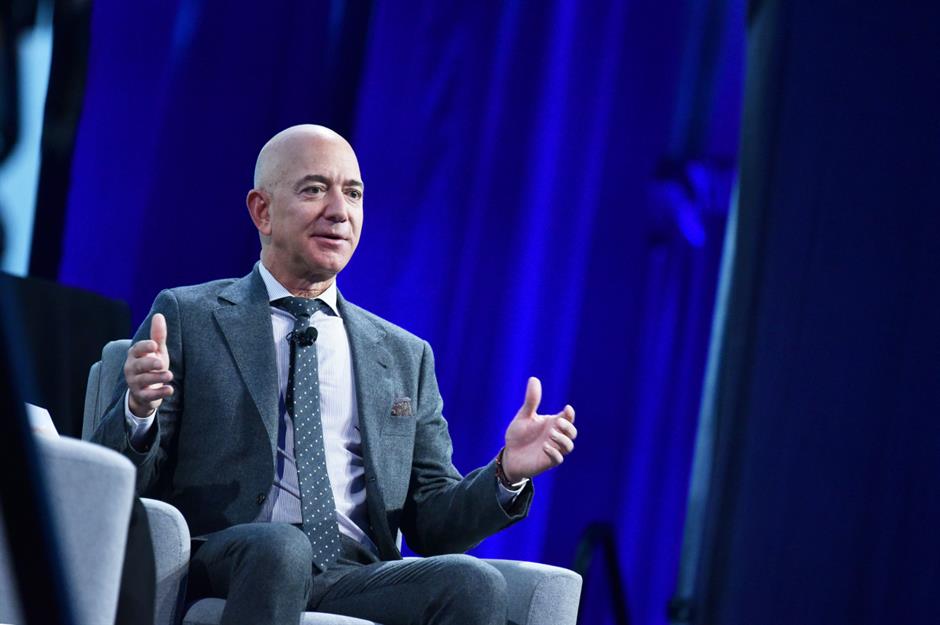
Amazon CEO Jeff Bezos is the richest man on the planet with an eye-watering current net worth of $143.2 billion (£114.6bn), according to Forbes, and despite the fact that economies and businesses across the world are struggling due to the global pandemic Bezos' wealth hasn't been dented by coronavirus; in fact it’s actually increased by more than $24 billion (£19.4bn). From running a fledgling business out of his garage in the 1990s to controlling the world’s largest online retailer today, click or scroll through to learn about Bezos’ incredible rise to success.
The young Jeff
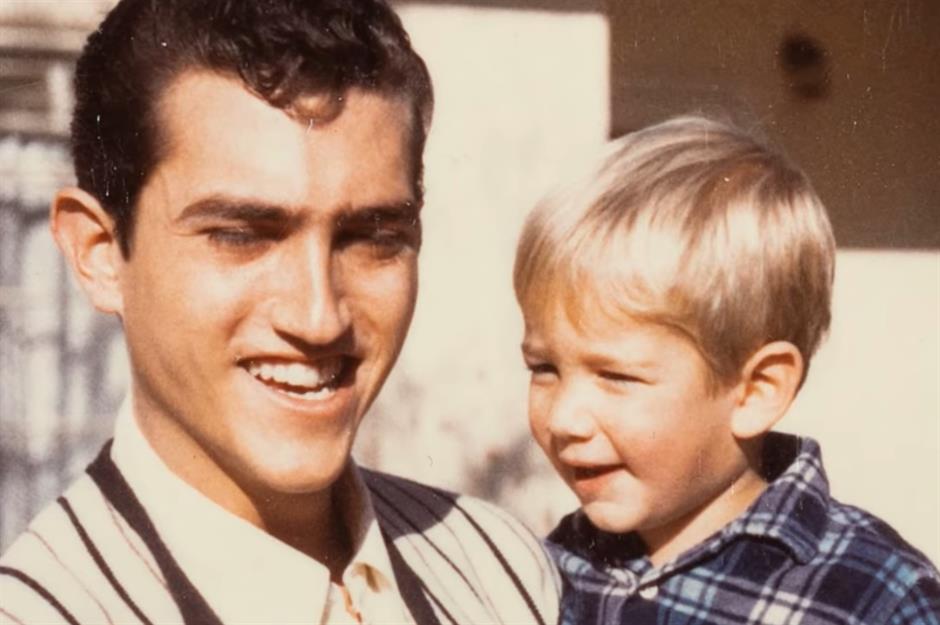
Bezos was born Jeffrey Preston Jorgensen on 12 January 1964 in Albuquerque, New Mexico. His parents separated when he was just 17 months old, and his mother Jackie Gise reportedly told dad Ted Jorgensen to stay out of their lives. She married Cuban migrant Miguel Bezos (pictured left) in 1968, who adopted Jeff as his son. The family moved a few times during his childhood, including to Pensacola, Florida and Houston, Texas.
A close-knit family
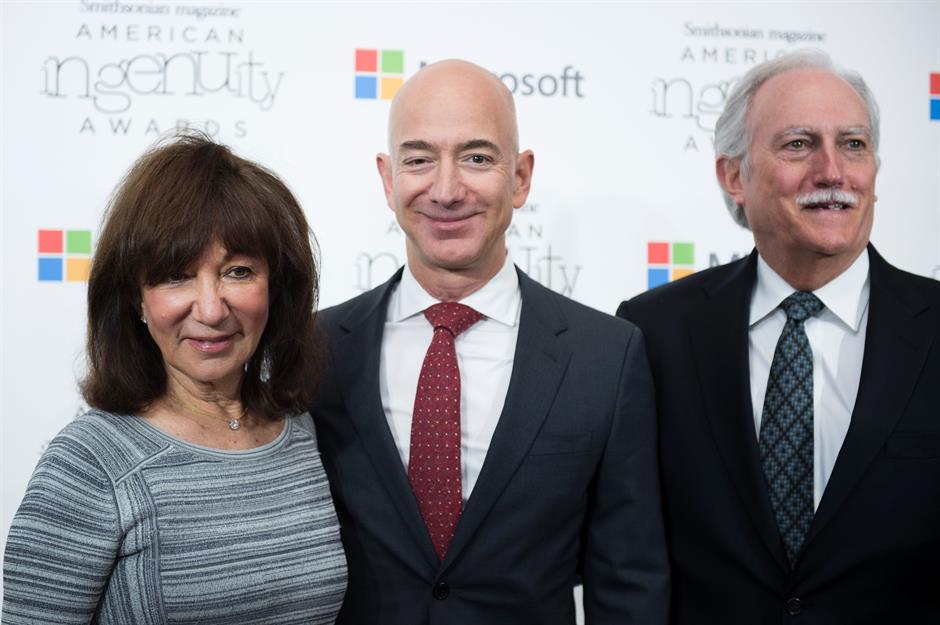
The Bezos clan, including younger sister Christina and brother Mark, were a close-knit family. Jeff only found out that Miguel was not his biological father when he was 10. He was not as shocked as you might expect, later telling Wired magazine he was much more upset to find out that he had to wear glasses at about the same time. Pictured is Bezos with mother Jackie and stepfather Miguel.
Sponsored Content
No ordinary child
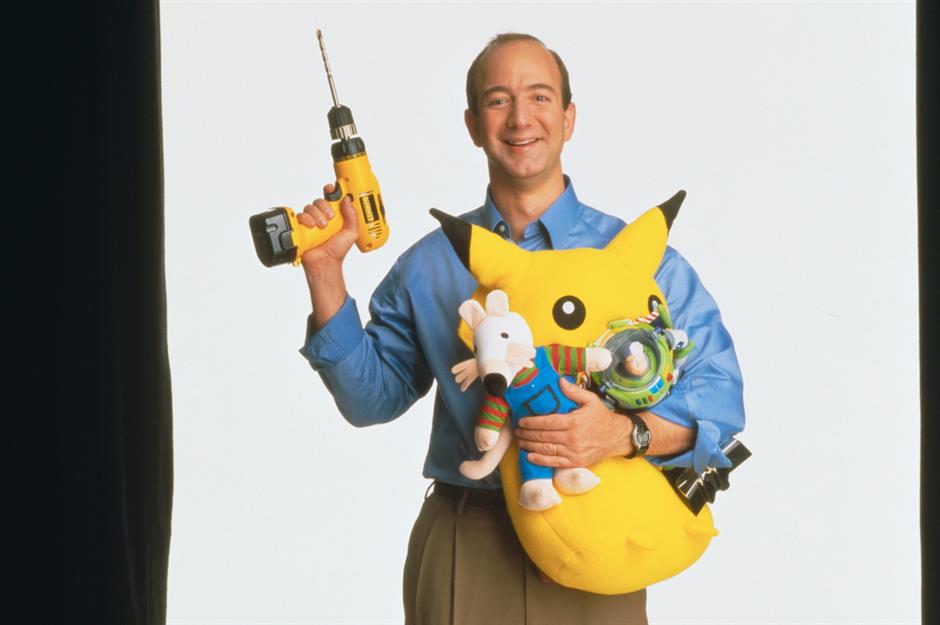
There were signs Jeff was no ordinary child from a young age. He is said to have taken apart his own crib as a toddler, determined to turn it into a grown-up bed. A key early influence was his grandfather Lawrence Gise, who impressed the young boy with paraphernalia from his career in the space and defense industries. Jeff spent many summers helping out on his grandfather’s ranch, and he was so inspired by the old man’s stories that he set his sights on a career in space travel. But one telling difference between Jeff and other young dreamers was that he did not want to be an astronaut. His forward-thinking, commercial eye was clear in the ambition he revealed to friends – to become a space entrepreneur.
Teenage dreams
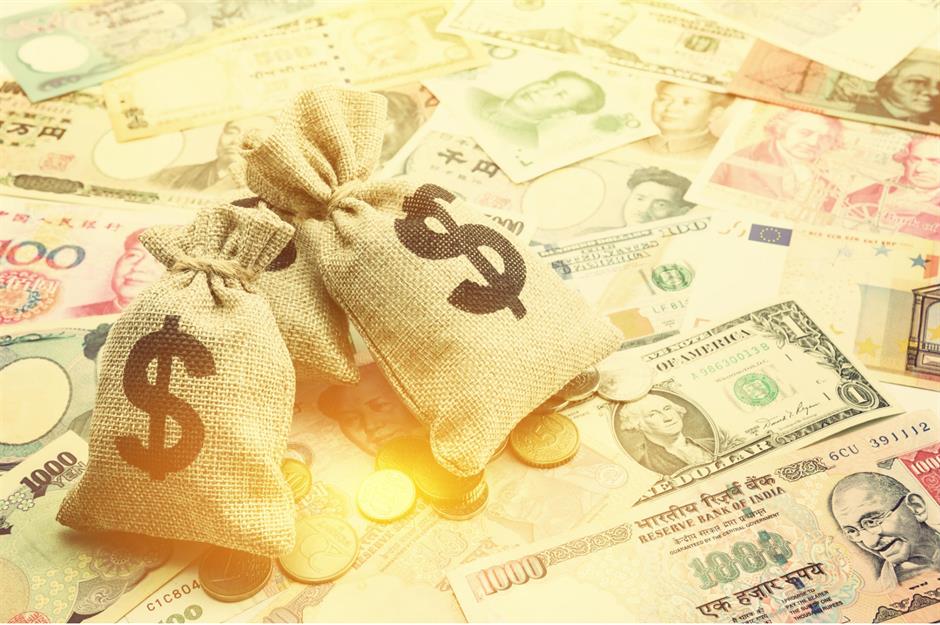
The desire to earn serious profits was also clear in a teenage Jeff. His high school girlfriend Uschi Werner told Wired: “It wasn’t about money itself. It was about what he was going to do with the money, about changing the future.” She joked that his real motivation for launching Amazon was simply to satisfy his earlier passions by earning enough to build a space station.
First summer jobs
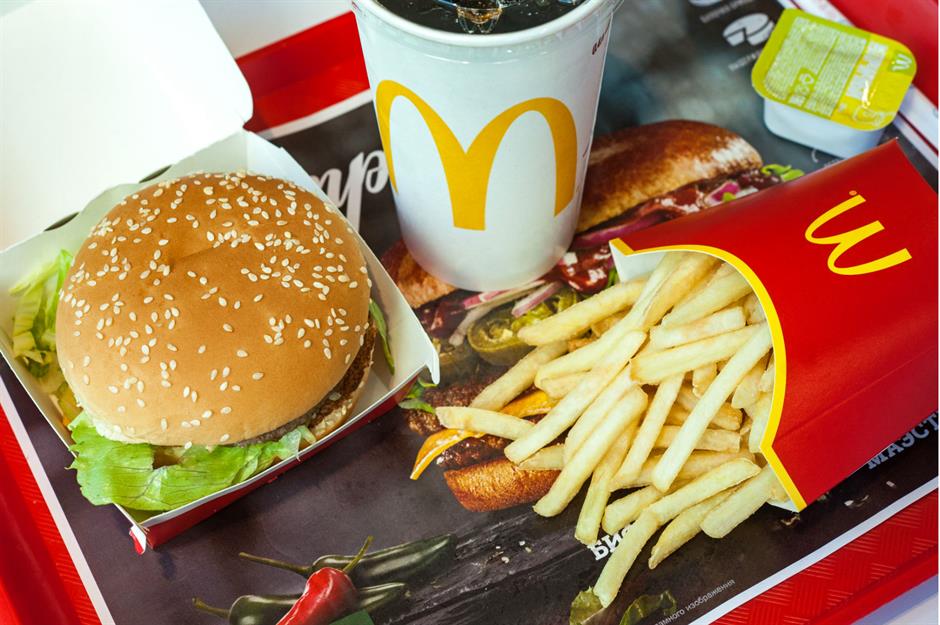
Sponsored Content
No Einstein
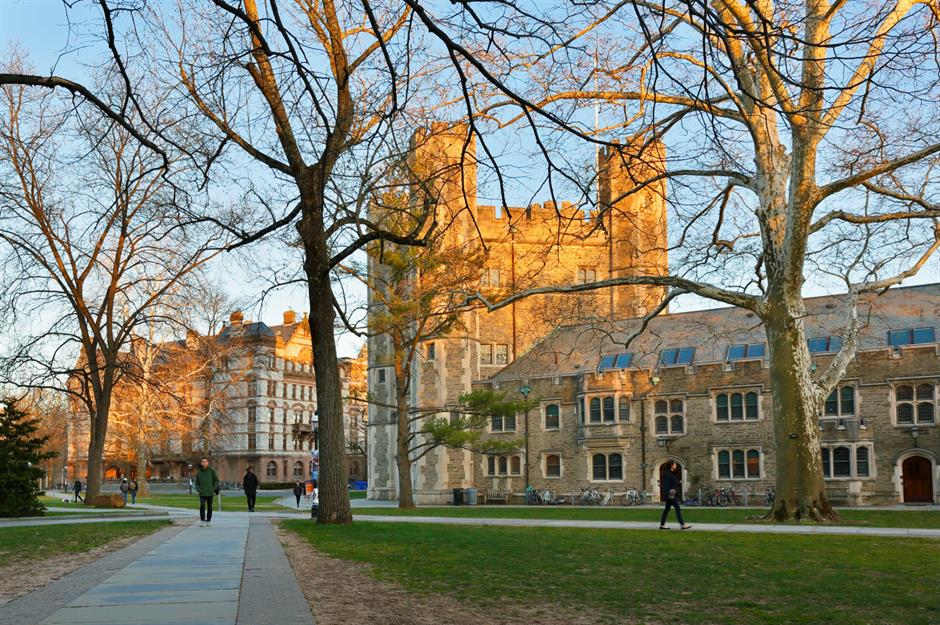
The finance years
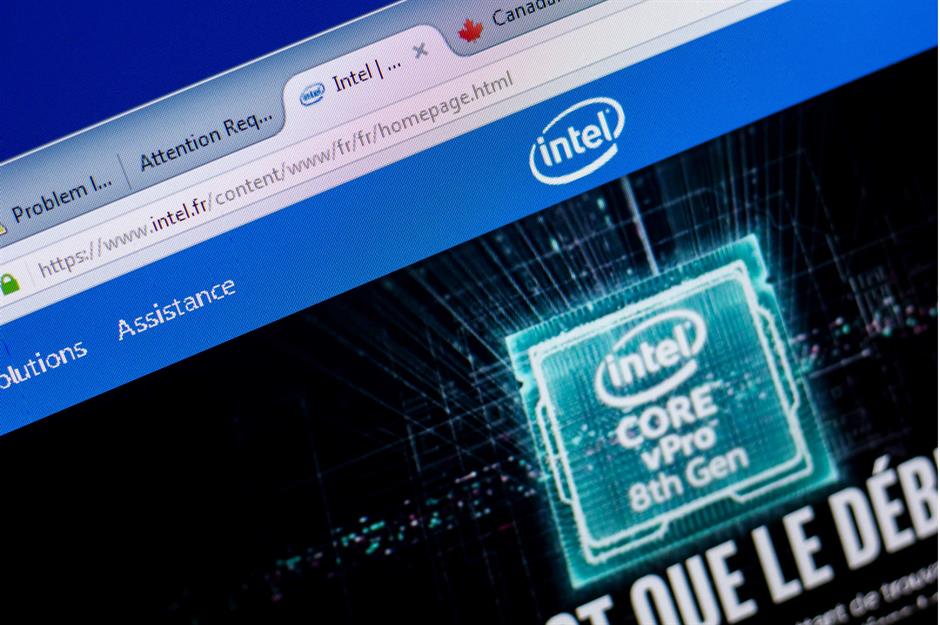
Bezos found himself with job offers from Intel and other big firms when he left the Ivy League university. He turned them down in favor of a telecommunications start-up called Fitel, where he was swiftly promoted to head of development. He had itchy feet and moved after a couple of years. He then lasted only another two years in his next job at Bankers Trust, selling software to pension fund clients.
The big idea
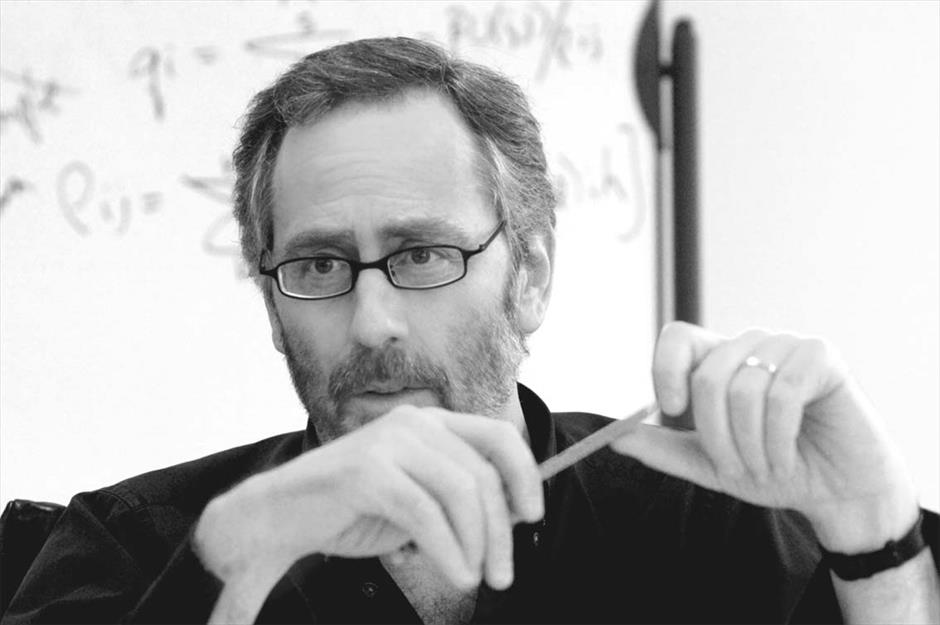
Bezos stayed in finance, but moved to a young hedge fund run by a computer scientist he immediately clicked with: David Shaw (pictured). His role at the company included scoping out commercial openings in the new world of the internet in the early 1990s. It was here that he met his future wife, and where the seeds of his retail empire were sown.
Sponsored Content
The professional dater
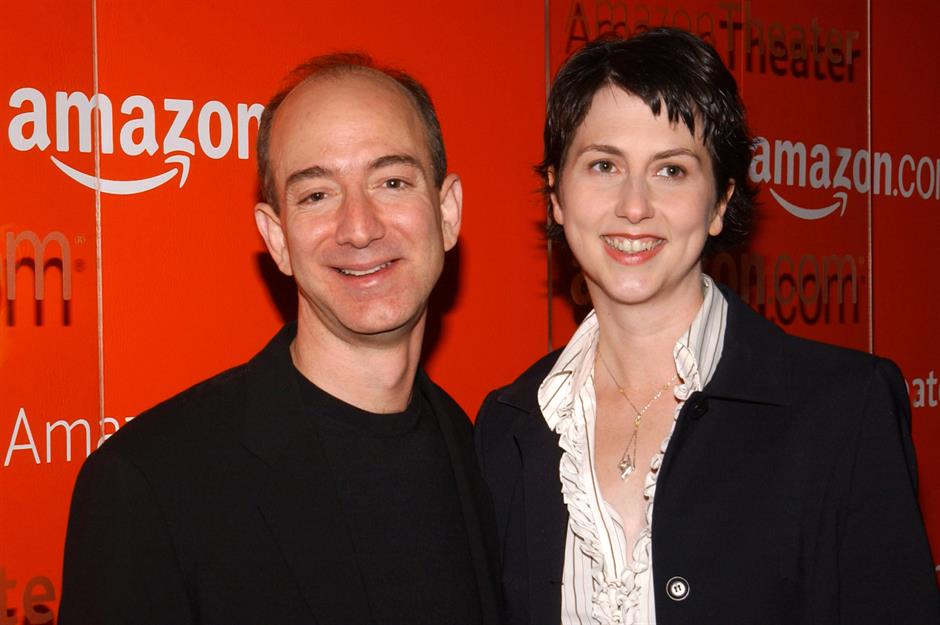
Bezos has described himself as “sort of a professional dater” as a young man working in New York. He had looked for specific criteria such as “resourcefulness”, approaching romance with the same hard-headed, strategic mindset he applied to his professional life. But the ambitious young Jeff ended up falling for a colleague at the hedge fund, a research associate called MacKenzie Tuttle. The couple married in 1993.
The first chapter
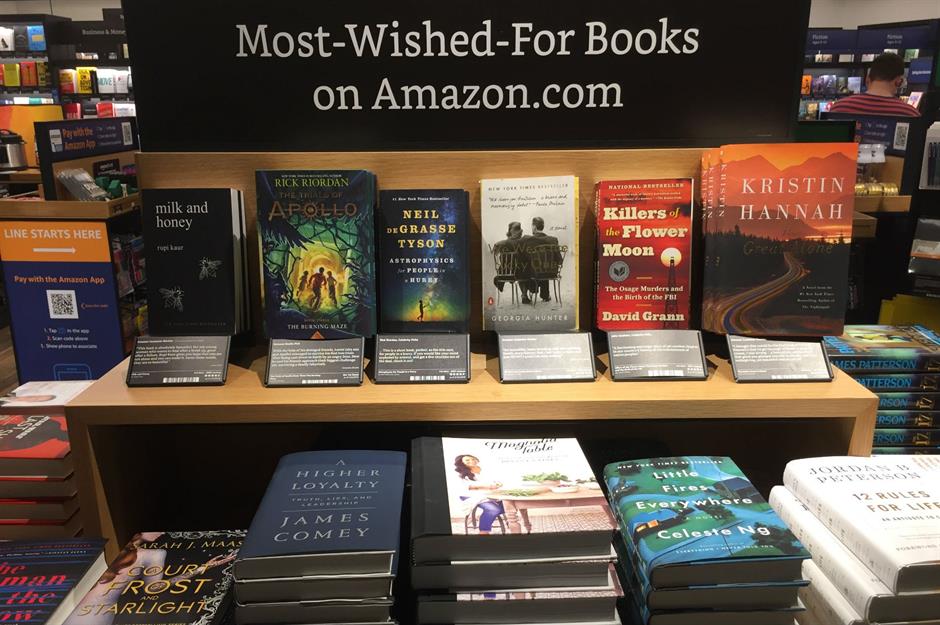
Power of e-commerce

Bezos saw that an online seller could have the edge on bookstores in several ways. Supplying customers directly from vast warehouses would allow a far larger stock of immediately available products, and save on store overheads. Many in the book trade may not have realized its significance, but a vital tool for anyone looking to disrupt the industry had just been made available online. These were the book distributors’ inventory lists, giving Bezos a precious resource in deciding what to sell.
Sponsored Content
On the road
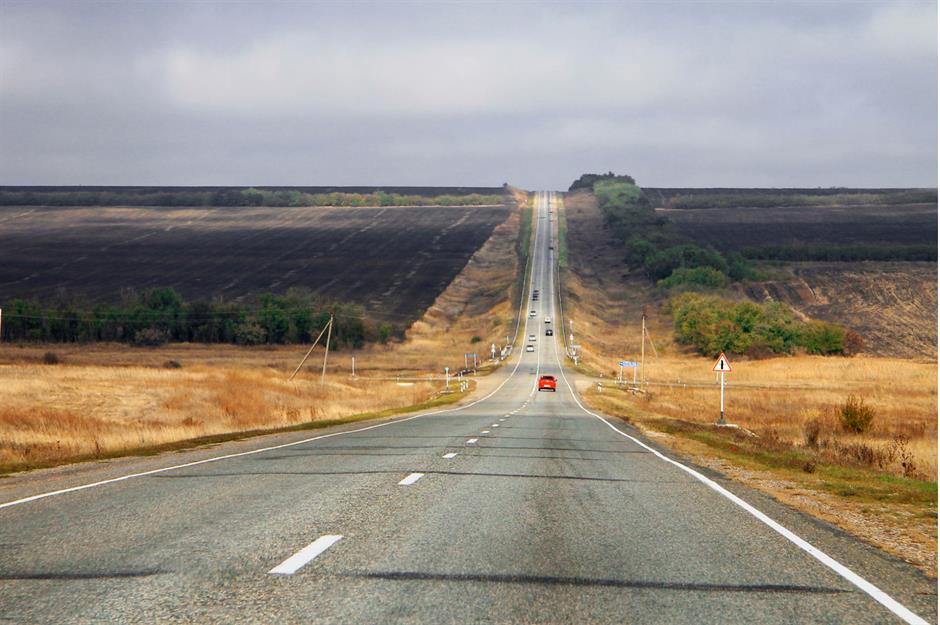
The garage retailer

The trio set to work on their virtual bookstore in the small garage of a rented house in Seattle. Amazon went live in July 1995. They set up a bell to ring every time they made a sale, which quickly started to ring off the hook as orders flooded in from across the US. The house (pictured) went on the market last year for just under $1.5 million (£1.1m). Amazon actually began its life with a different, magical name – Cadabra. Mashable reports that it was only changed when the founder’s lawyer misheard it as “cadaver”. The new name was apparently inspired by the incredible size of the great South American river. More pragmatically, Bezos is thought to have wanted something beginning with “A”, in the days when websites were sometimes ranked alphabetically.
Against the odds
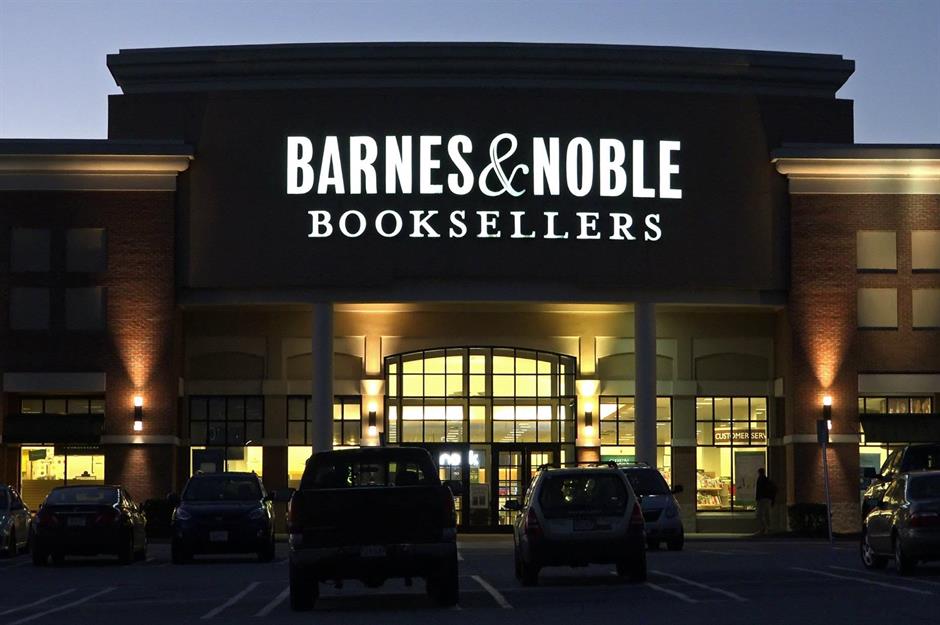
Not everyone had faith in the young company’s prospects. One market research firm’s report was titled “Amazon.toast”, predicting it would be wiped out by book giants like Barnes & Noble. Ironically Bezos and Kaphan often used their local Barnes & Noble as an office, plotting to revolutionize the book trade over coffee in its cafe.
Sponsored Content
Rapid success
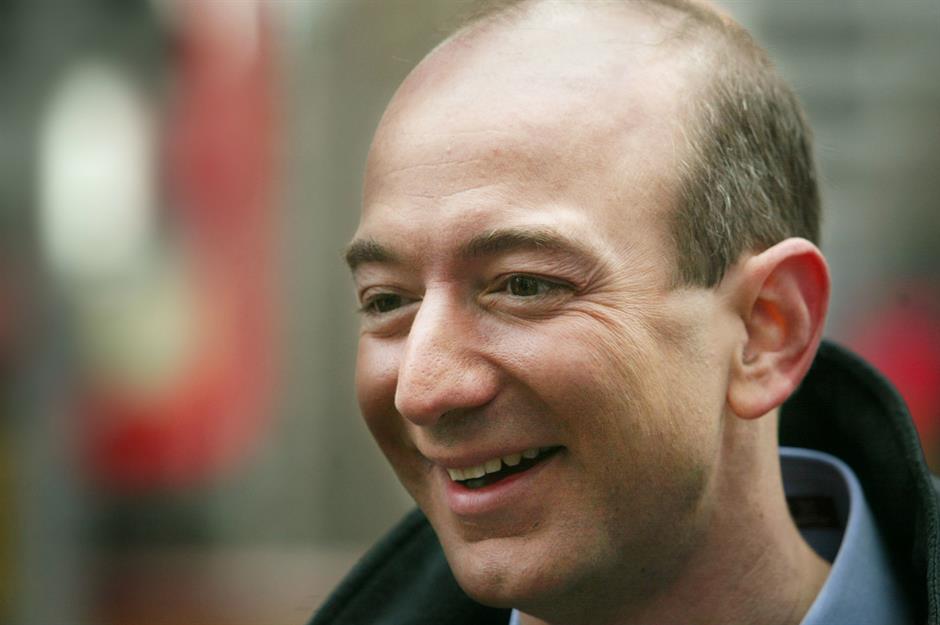
The early Amazon grew rapidly almost from the outset. In its first month alone, it had sold books in all 50 US states. It even notched up sales in 45 different countries. It went public in 1997, with its stock priced at just $18 a share, and by January 1999 Amazon was worth $22.1 billion according to an article published in Wired at the time.
Total dominance
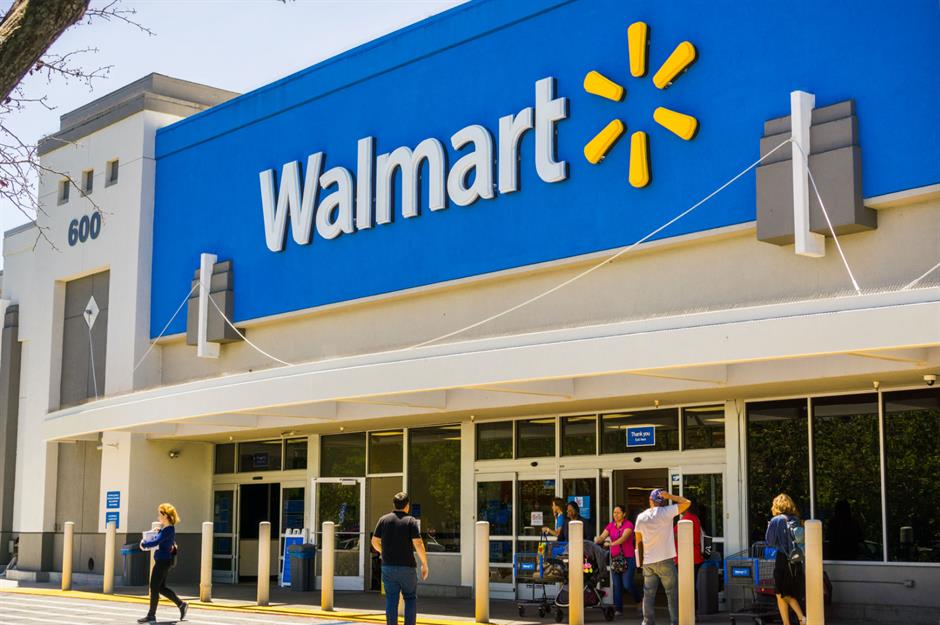
The past two decades have seen spectacular growth that transformed Amazon into the world’s largest online retailer. The business has certainly fulfilled Bezos’ dream of becoming an “everything store” and more, selling a mind-boggling range of products from electronics to clothes, groceries to car parts. In February 2020, Bank of America estimated that Amazon had a 44% share of the US e-commerce market, while Walmart, in second place, trailed behind at just 7%.
'The ultimate disrupter'
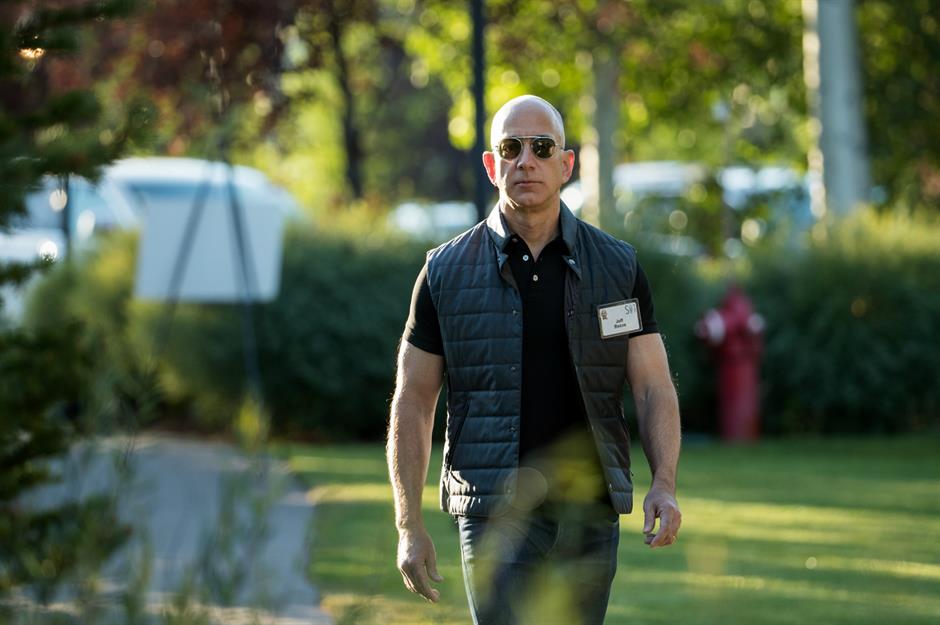
In 2012, Fortune called Jeff Bezos “the ultimate disrupter”, with Amazon continuing to innovate and expand well beyond its core retail business.
From Amazon Fire tablets to cloud computing services and the Amazon Alexa, it has broken new ground with products of its own. Bloomberg reports that the company even has a “clandestine group with a name worthy of a James Bond film: Competitive Intelligence”. It allegedly investigates competitors in forensic detail to spot any areas where rivals are gaining ground.
Sponsored Content
Protests over awards
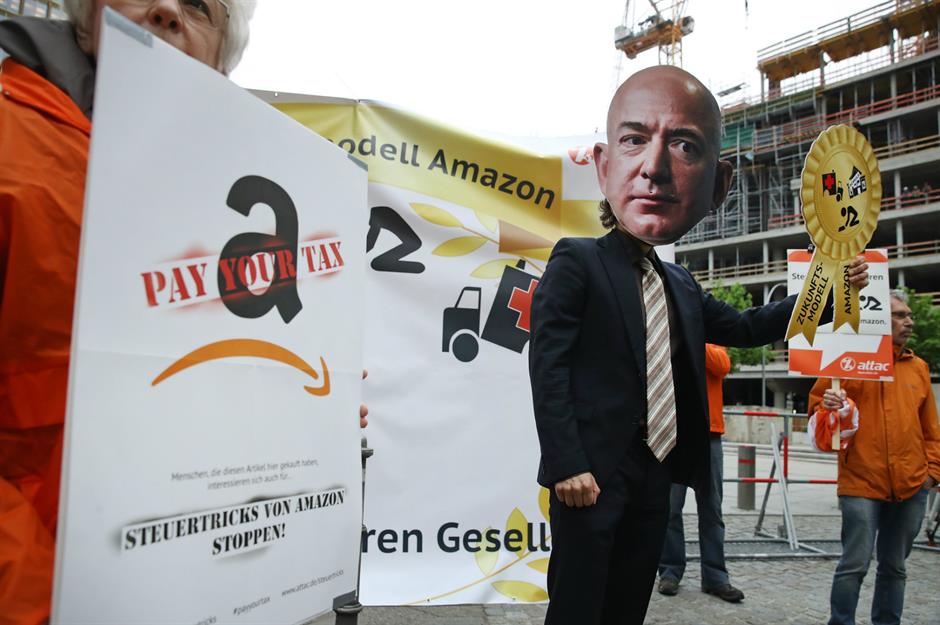
Hundreds of Amazon workers protested outside when Bezos picked up an award for social responsibility and innovation in Berlin in early 2018. German employees complained of “chaotic conditions”, stress and inadequate pay. Jeff Bezos defended the company’s treatment of staff, saying: “I am very proud of our working conditions and I am very proud of the wages that we pay.”
But is Amazon one of these 30 companies that have the happiest employees in America?
Watch this space
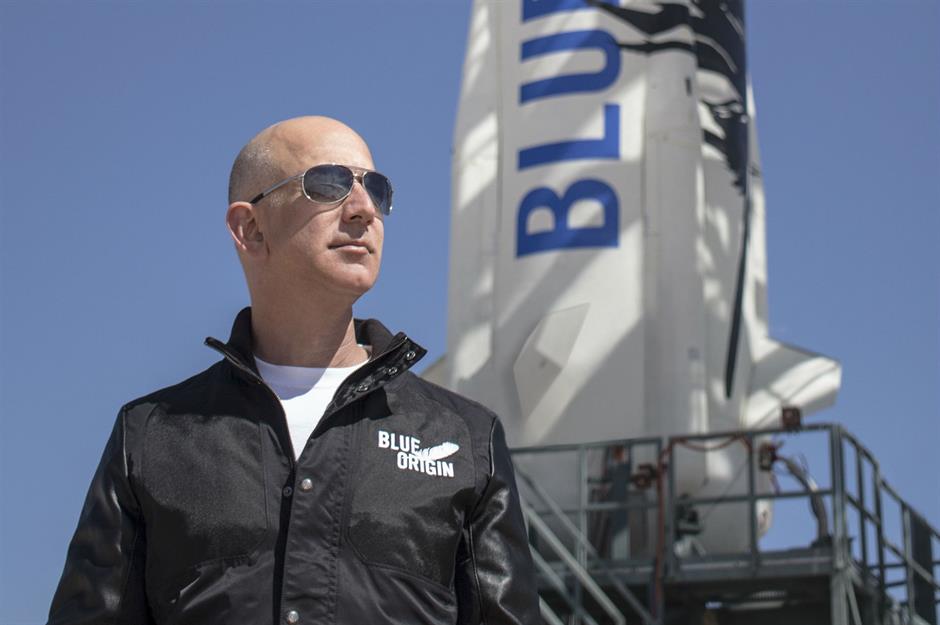
The billionaire businessman has invested extensively beyond his Amazon empire, putting money into other tech businesses such as Uber and funding the recovery of the engine from the Apollo 11 mission that was lost in the ocean in 1969. But one of his most well-known side projects is Blue Origin, which he founded in 2000. Fulfilling his childhood dream, Bezos hopes that the company will see him win the modern space race and be the first to take tourists to space. Blue Origin had intended to start launching trips in 2019 but the process has been delayed, and the current pandemic will probably put space tourism on the back burner for the foreseeable.
Jeff Bezos beyond Amazon, from the 10,000-year clock to his dreams of space travel
Washington state estate
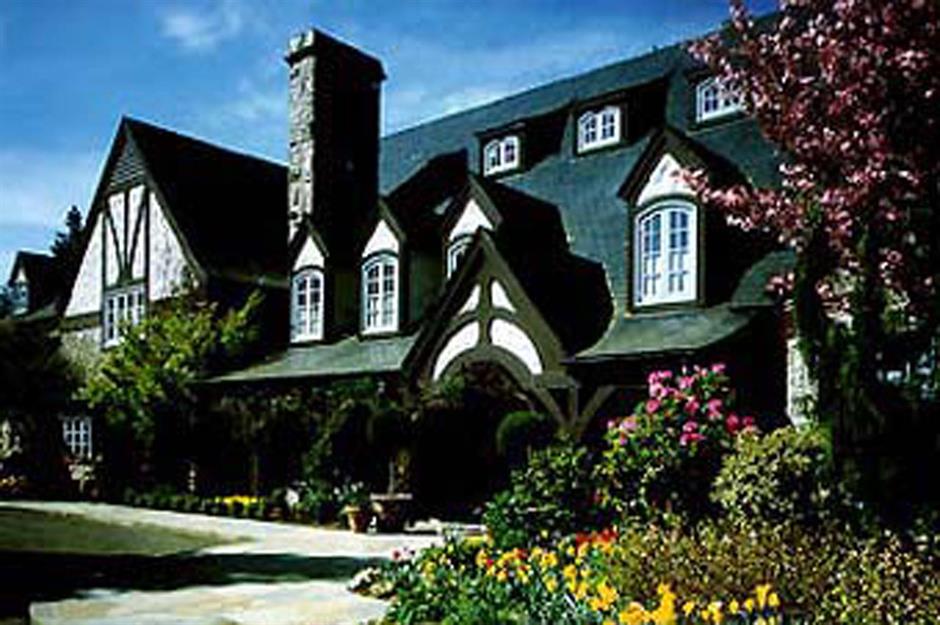
Bezos is not afraid of spending his money and owns 10 homes. In fact the multi-billionaire has a habit of buying not just one home in an area, but snapping up the neighboring ones too. Back in 1998 he spent $10 million on this 5.3-acre estate in Medina, Washington, not far from Bill Gates' Xanadu 2.0 mansion. The estate boasts two homes, a roomy six-bedroom house and an even larger 20,605-square-foot property, which was completed in 2004. He has since bought the five-acre estate next door (pictured), which includes a $53 million (£42.4m) Tudor-style mansion.
Sponsored Content
New York apartments
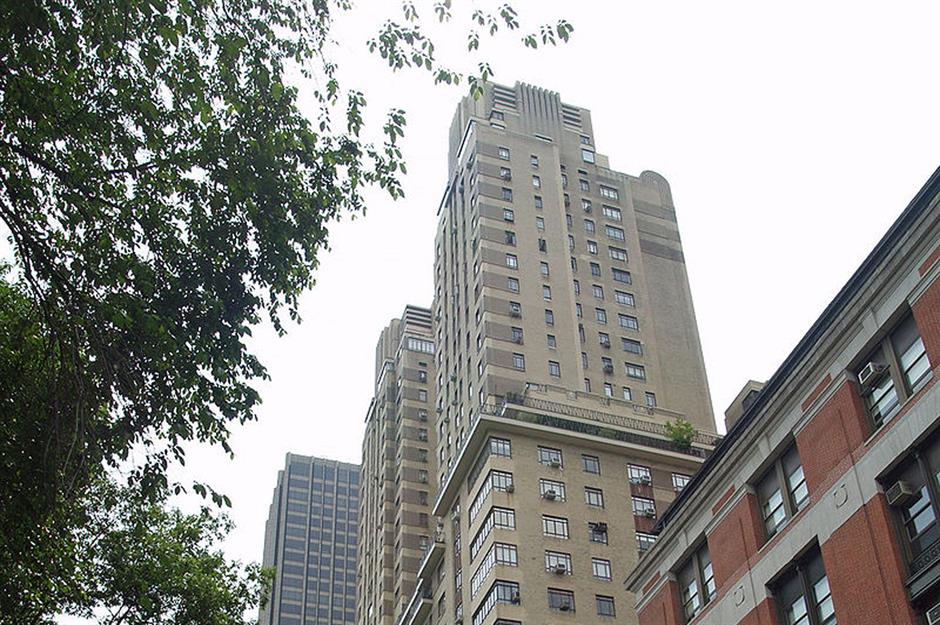
Beverly Hills base
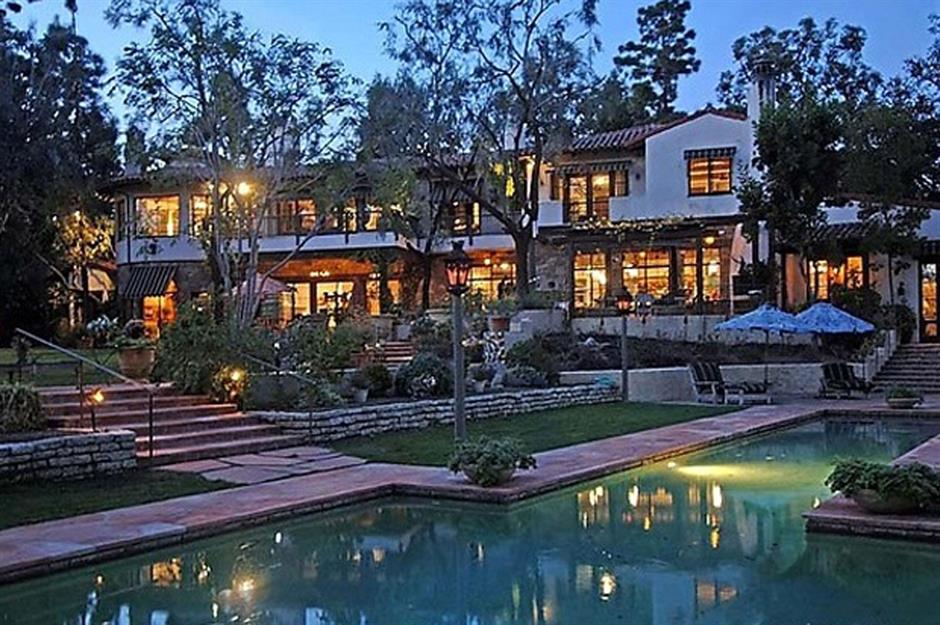
Former museum home
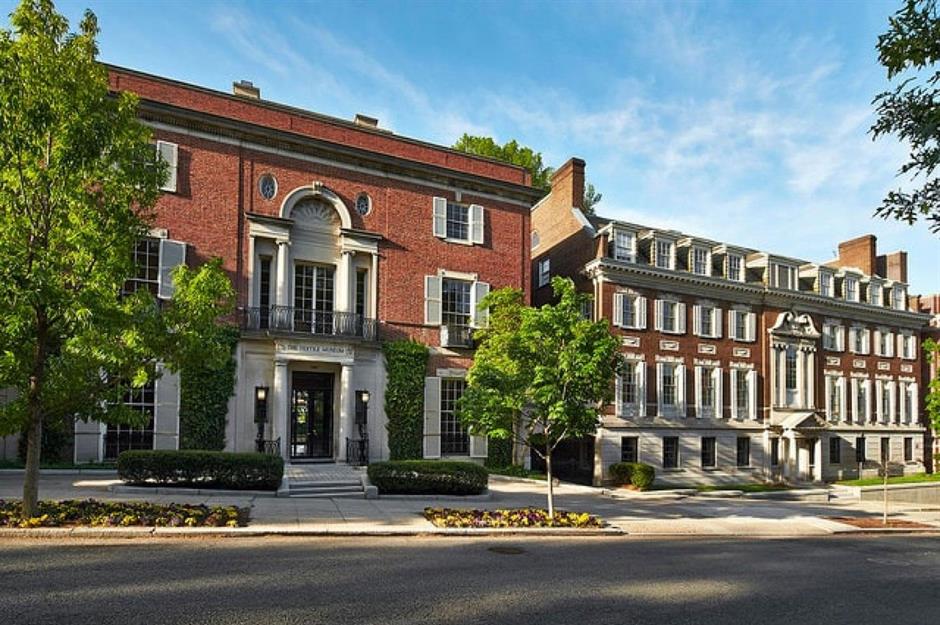
Bezos also owns this former museum in Washington DC (pictured), worth $23 million (£17m), and a gigantic 300,000-acre estate in West Texas, making him one of America's leading landowners with a grand total of 420,000 acres of land. The Texan ranch, which includes a luxury four-bedroom home, doubles up as a base for his Blue Origin space company, and a personal retreat for the billionaire.
Read about the rest of the biggest landowners in America
Sponsored Content
Donations and acquisitions
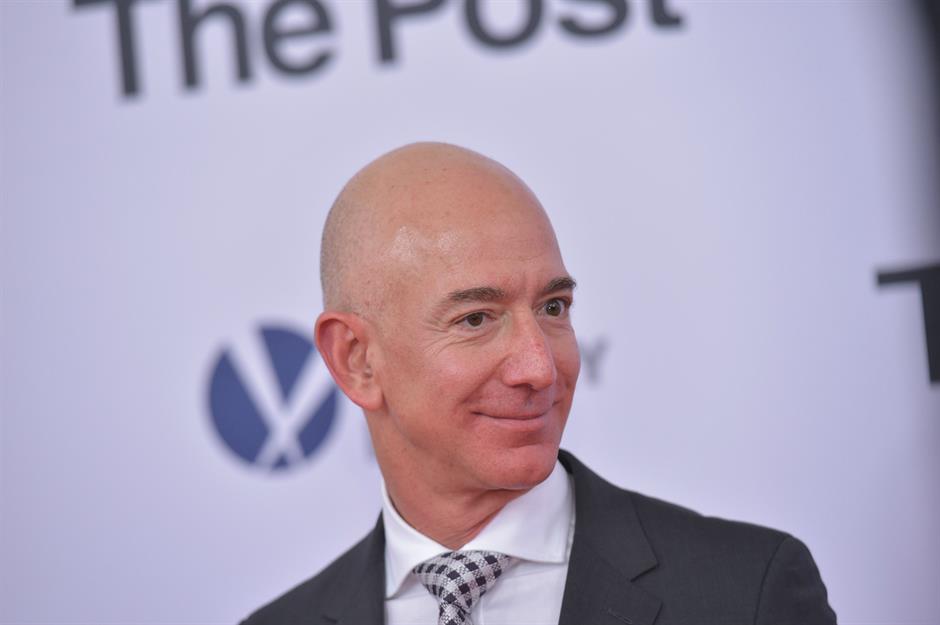
As well as his impressive property portfolio, Bezos has also used his wealth to fund an unusual range of causes. Bezos donated $2.5 million (£2m) to the campaign defending gay marriage in Washington in 2012. He reportedly donated $42 million (£34m) and some of his own land towards an underground clock designed to last 10,000 years. And he made headlines by buying the Washington Post for $250 million (£203m) in 2013.
Split from MacKenzie
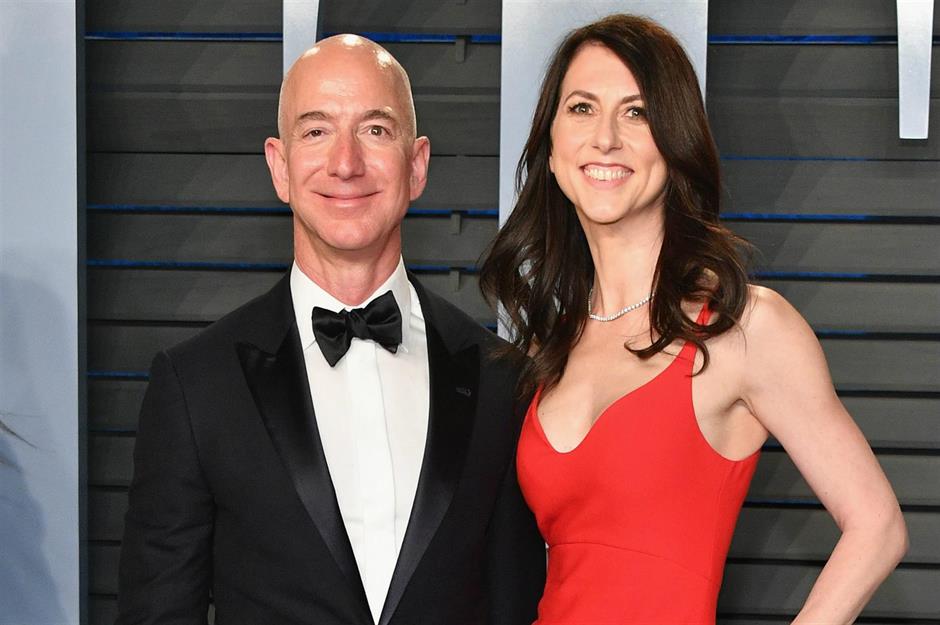
The past few years haven't been all rosy for Bezos, though. In July last year, he divorced his wife of 25 years, MacKenzie Bezos, in a $38 billion (£31bn) settlement. The money, in the form of Amazon stock, has made MacKenzie Bezos the current fourth-richest woman on the planet according to Forbes' 2020 billionaires list.
The richest man made richer by the pandemic
Despite his divorce, Bezos' net worth hasn't taken too much of a hit – in actual fact, it has since increased thanks to the rising prices of Amazon stock, as the company has experienced a surge in orders from people around the world staying at home during the coronavirus pandemic. This makes him one of the few billionaires who has increased his net worth since the beginning of the year, according to Bloomberg Billionaires Index.
Sponsored Content
Coronavirus controversies
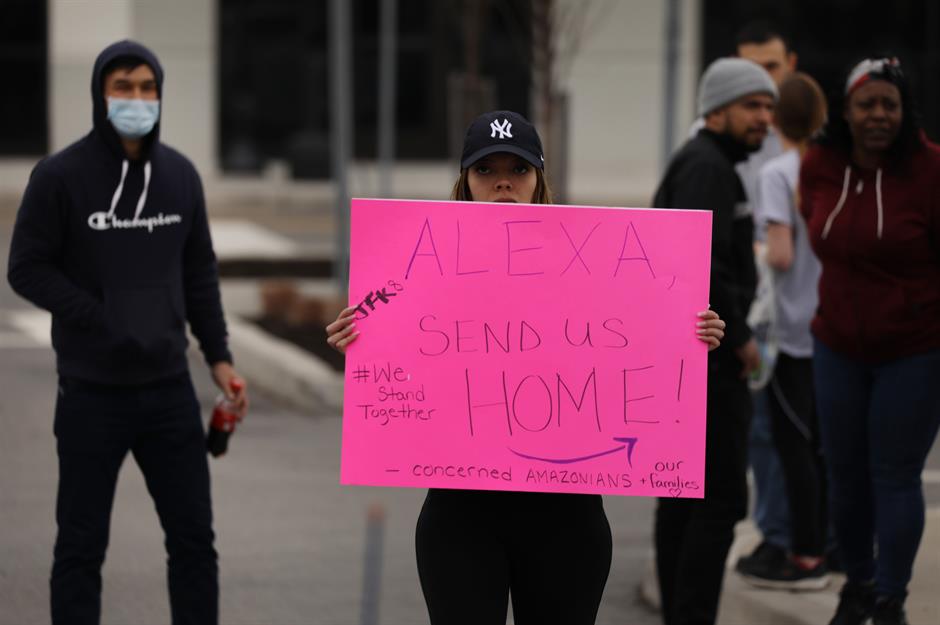
But while Bezos's net worth is seeing a boost from the COVID-19 pandemic, the welfare of the workers helping to drive those profits has come under the spotlight again. More than 300 US employees at Amazon have pledged to call in sick and stay home from work, it was reported on 21 April. Why? The employees are protesting the lack of face masks provided for employees, the failure to implement regular temperature checks as promised and refusal to provide sick pay, according to Union for Respect. The company has put safety measures into place in warehouses including a six-foot social distancing rule and providing cleaning materials and hand wipes.
Charitable donation
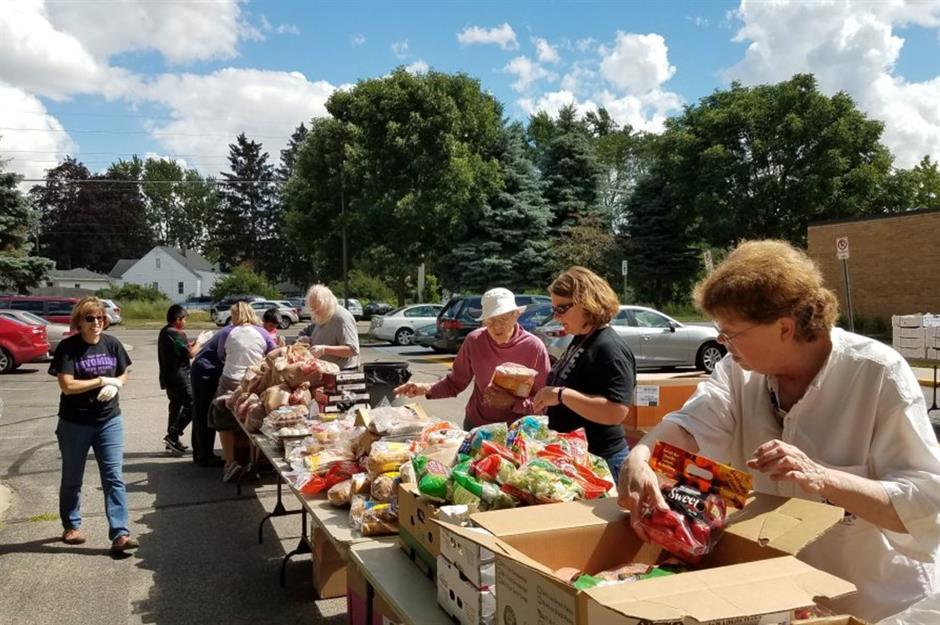
On 2 April 2020, Bezos made a donation to the tune of $100 million (£81m) to Feeding America, a food bank network which is providing extra support to those who have been hit hard by the pandemic. Following criticism for his perceived lack of charitable giving over the years, Bezos pledged $10 billion (£8bn) to a climate change related fund earlier this year and $2 billion (£1.6bn) towards homelessness and education in 2018, although his critics say these donations are small compared to his net worth.
Mystery donor
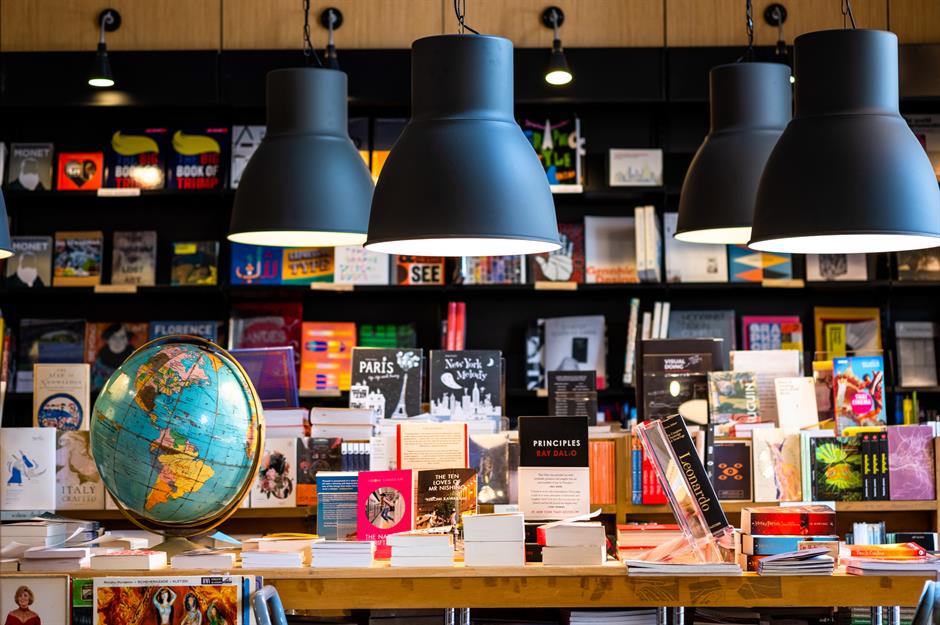
But in a very unexpected twist, it was revealed on 23 April that Amazon had been the "mystery" donor of £250,000 ($310.6k) to help UK booksellers survive the pandemic. Despite the fact Amazon has often been seen as the ultimate rival to physical bookstores, the e-commerce giant added the donation to a fundraiser set up by the London Review Bookshop, which had initially aimed to raise £10,000 ($12.4k) to help struggling stores. The fund had raised its target to £100,000 ($124k) following a flood of early donations from prominent authors, but Amazon's contribution more than doubles that revised target.
Sponsored Content
Taking the helm once again
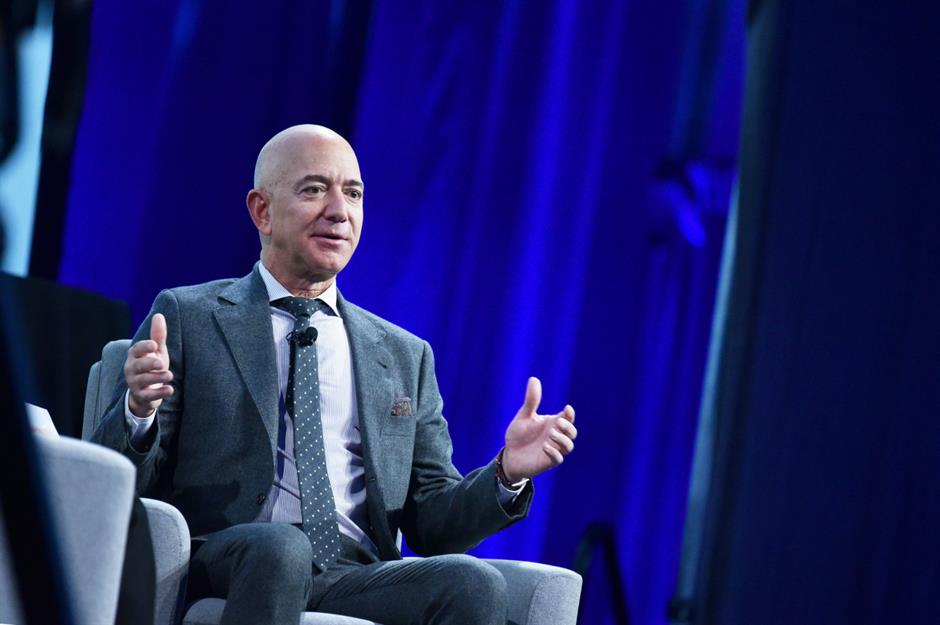
To help with Amazon’s own response to coronavirus, Bezos has recently taken back over the day-to-day running of the company, as opposed to focusing on bigger projects like the development of Amazon Alexa or the cashier-free Amazon Go stores. In a letter to shareholders earlier this month, he said, “For now, my own time and thinking continues to be focused on COVID-19 and how Amazon can help while we’re in the middle of it.”
Now discover what Amazon plans to do next
Comments
Be the first to comment
Do you want to comment on this article? You need to be signed in for this feature